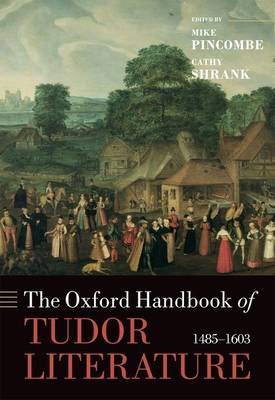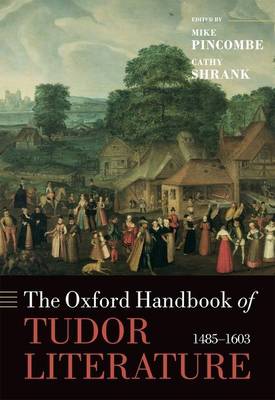
- Afhalen na 1 uur in een winkel met voorraad
- Gratis thuislevering in België vanaf € 30
- Ruim aanbod met 7 miljoen producten
- Afhalen na 1 uur in een winkel met voorraad
- Gratis thuislevering in België vanaf € 30
- Ruim aanbod met 7 miljoen producten
Zoeken
Omschrijving
This is the first major collection of essays to look at the literature of the entire Tudor period, from the reign of Henry VII to the death of Elizabeth I. It pays particular attention to the years before 1580. Those decades saw, amongst other things, the establishment of print culture and growth of a reading public; the various phases of the English Reformation and process of political centralization that enabled and accompanied them; the increasing emulation of Continental and classical literatures under the influence of humanism; the self-conscious emergence of English as a literary language and determined creation of a native literary canon; the beginnings of English empire and the consolidation of a sense of nationhood. However, study of Tudor literature prior to 1580 is not only of worth as a context, or foundation, for an Elizabethan 'golden age'. As this much-needed volume will show, it is also of artistic, intellectual, and cultural merit in its own right. Written by
experts from Europe, North America, and the United Kingdom, the forty-five chapters in The Oxford Handbook of Tudor Literature recover some of the distinctive voices of sixteenth-century writing, its energy, variety, and inventiveness. As well as essays on well-known writers, such as Philip Sidney or Thomas Wyatt, the volume contains the first extensive treatment in print of some of the Tudor era's most original voices.
experts from Europe, North America, and the United Kingdom, the forty-five chapters in The Oxford Handbook of Tudor Literature recover some of the distinctive voices of sixteenth-century writing, its energy, variety, and inventiveness. As well as essays on well-known writers, such as Philip Sidney or Thomas Wyatt, the volume contains the first extensive treatment in print of some of the Tudor era's most original voices.
Specificaties
Betrokkenen
- Auteur(s):
- Uitgeverij:
Inhoud
- Aantal bladzijden:
- 864
- Taal:
- Engels
- Reeks:
Eigenschappen
- Productcode (EAN):
- 9780199697892
- Verschijningsdatum:
- 13/01/2012
- Uitvoering:
- Paperback
- Formaat:
- Trade paperback (VS)
- Afmetingen:
- 246 mm x 173 mm
- Gewicht:
- 1491 g

Alleen bij Standaard Boekhandel
+ 116 punten op je klantenkaart van Standaard Boekhandel
Beoordelingen
We publiceren alleen reviews die voldoen aan de voorwaarden voor reviews. Bekijk onze voorwaarden voor reviews.











